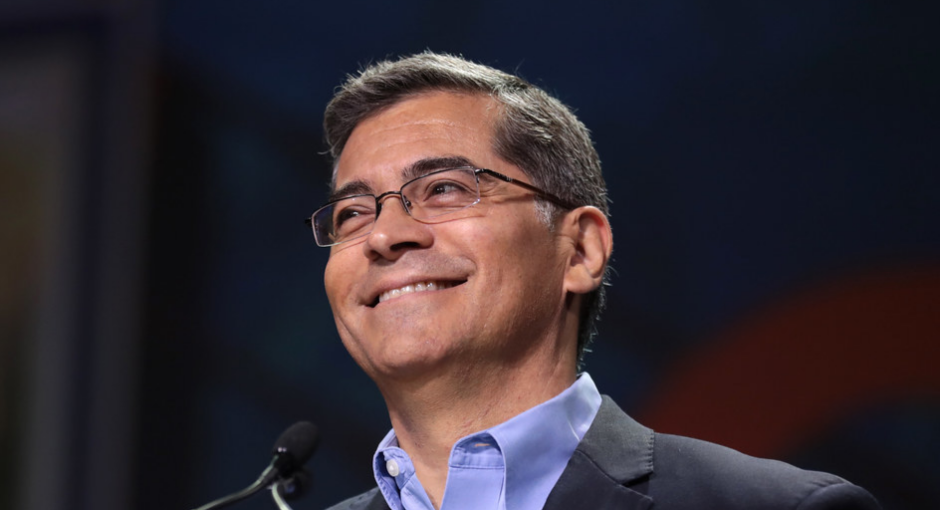Six hospital groups asked U.S. Health and Human Services (HHS) Secretary Xavier Becerra on Tuesday to state “immediately and definitively” that six drug manufacturers’ refusals to offer 340B discounts on drugs dispensed by contract pharmacies are illegal.
They also asked Becerra to impose civil monetary penalties on the companies—AstraZeneca, Eli Lilly, Novartis, Novo Nordisk, Sanofi, and United Therapeutics. The HHS Office of Inspector General can impose sanctions of up to $5,000 for each instance of knowing and intentional overcharging of a 340B covered entity. Under the 2017 340B program final rule that authorizes the civil fines, the term “instance” is defined as “any order for a covered outpatient drug, by NDC, which results in a covered entity paying more than the ceiling price.”
No drug manufacturer has ever been sanctioned under the 2017 regulations for overcharging a 340B covered entity.
“Our organizations represent virtually every hospital and health system—as well as the skilled pharmacists who work there—that participate in the 340B program and dispense drugs through a community pharmacy,” the groups wrote to Becerra on April 20. “On behalf of our members we are requesting that HHS immediately take steps to halt this detrimental and illegal conduct.”
The groups—American Hospital Association (AHA), 340B Health, America’s Essential Hospitals, Association of American Medical Colleges (AAMC), Children’s Hospital Association (CHA), and ASHP (American Society of Health-System Pharmacists)—sent their letter to Becerra the day after lawyers representing him told a federal district judge in Washington, D.C., that HHS is “actively considering” unspecified “options for agency enforcement of the 340B statute” against manufacturers denying 340B pricing on contract pharmacy drugs.
Becerra’s lawyers made the disclosure in a joint status report to the judge about Ryan White Clinics for 340B Access’ (RWC-340B’s) suit against HHS that seeks, in part, to force HHS to implement a 340B administrative dispute resolution (ADR) system. Two community health centers represented by RWC-340B have filed ADR petitions against AstraZeneca over its alleged illegal denial of 340B pricing on drugs dispensed by the health centers’ contract pharmacies.
The ADR proceedings have been delayed because, in January, the new Biden administration withdrew the former Trump administration’s last-minute appointments to the ADR board. In Monday’s report to the judge, the government indicated that Becerra would make new appointments to the board soon, which will let HHS “move forward with implementing the ADR Rule.”
The six hospital groups that wrote to Becerra this week sued HHS in December. They wanted a federal judge to order HHS to do what they are asking Becerra to do voluntarily now. The judge dismissed their suit in February, saying HHS set up the 340B ADR process as the initial forum to resolve complaints against manufacturers such as theirs. The judge left the door open for the hospital groups to sue HHS again in the future if they wish to challenge the action that HHS takes against the manufacturers.
The hospital groups are not content to have to rely on the ADR process to get relief.
“Not only has the ADR regulation never been implemented (HRSA never appointed an ADR panel to resolve disputes), but the regulation is being challenged in three separate lawsuits filed by Lilly, Sanofi, and the Pharmaceutical Research and Manufacturers of America, and has been preliminarily enjoined by the court in the lawsuit brought by Lilly,” they pointed out in their letter to Becerra. “It is possible that the courts in the other cases will do the same. In any case, it is not likely that this avenue of redress will be available anytime in the foreseeable future, thus exacerbating the harm being caused by these drug companies’ refusal to obey the law and making it imperative the HHS take action to halt their conduct.”


